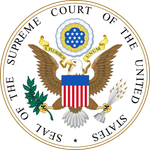There are excellent sources available for those interested in the history of capital punishment. The following pages contain a brief summary of that history, with an emphasis on developments in the United States.

This chart* chronicles the United State’s use of the death penalty over the past four centuries. The chart highlights the gradual rise in use of capital punishment in the seventeenth, eighteenth, and nineteenth centuries; a peak of executions in the early 20th century; moratorium; and then the resumption of executions after moratorium.
The use of the death penalty has declined sharply in the United States over the past 25 years. New death sentences have fallen more than 85% since peaking at more than 300 death sentences per year in the mid 1990s. Executions have declined by 75% since peaking at 98 in 1999.

For a timeline of significant events in the history of the death penalty in the United States, see DPI’s Death Penalty Timeline. For dynamic visualizations and more information on executions and new death sentences in the modern era of capital punishment, see DPI’s Executions and Sentencing Data pages.
*The statistics used in the chart were primarily compiled from M. Watt Espy and John Ortiz Smylka’s database, “Executions in the U.S. 1608 – 2002: The Espy File.” (Inter-University Consortium for Political and Social Research) Periodically, DPIC will feature additional information derived from the Espy file. See also The Espy File.
News & Developments
News
May 15, 2024
“I Just Wanted…to Stay Alive”: Who was William Henry Furman, the Prisoner at the Center of a Historic Legal Decision?

Furman v. Georgia was one of the most monumental cases in American legal history: the 1972 decision overturned every state death penalty statute in the country and spared the lives of nearly six hundred people sentenced to die. But the lead petitioner, William Henry Furman, was little aware of his impact. Poor, Black, mentally ill, and physically and intellectually disabled, he was sentenced to death for the killing of a homeowner during a botched…
Read MoreNews
Oct 13, 2023
New Legal Research Declares “Heightened Standards” of Due Process in Capital Cases an “Illusion”
In a new law review article, Professor Anna VanCleave of the University of Connecticut School of Law argues that the“heightened standards” of due process protection for capital defendants, required under the Eighth Amendment, are in practice no more than“a veneer of legitimacy and procedural caution” that fail to vindicate defendants’ rights. Professor VanCleave found that in the absence of clear guidance from the Supreme Court as to the actual meaning of…
Read MoreNews
Dec 07, 2022
As Lethal Injection Turns Forty, States Botch a Record Number of Executions
On December 7, 1982, Texas strapped Charles Brooks to a gurney, inserted an intravenous line into his arm, and injected a lethal dose of sodium thiopental into his veins, launching the lethal-injection era of American executions. In the precisely forty years since, U.S. states and the federal government have put 1377 prisoners to death by some version of the method. Touted as swift and painless and a more humane way to die — just as execution proponents had said…
Read MoreNews
Nov 07, 2022
Closing the Slaughterhouse: The Inside Story of Death Penalty Abolition in Virginia
Virginia made history in 2021 when it became the first Southern state to abolish the death penalty. Closing the Slaughterhouse: The Inside Story of Death Penalty Abolition in Virginia tells the story of the commonwealth’s journey from leading executioner to groundbreaking abolitionist state. Written by journalist, author, and anti-death penalty advocate Dale Brumfield, the book explores Virginia’s history surrounding capital…
Read MoreNews
Aug 01, 2022
Massachusetts Formally Exonerates Last ‘Witch’ Wrongfully Condemned During Salem Hysteria. Will Connecticut Follow Suit?
As Massachusetts formally exonerated the last person condemned for witchcraft in the colony, efforts are under way to clear the names of the 46 people wrongfully charged with witchcraft in neighboring Connecticut during the 17th century…
Read More



